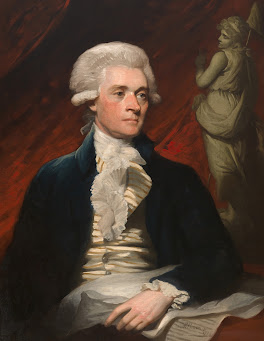This post was originally written for an assignment under a different name.
I am persuaded myself that the good sense of the people will always be found to be the best army. They may be led astray for a moment, but will soon correct themselves. The people are the only censors of their governors: and even their errors will tend to keep these to the true principles of their institution. To punish these errors too severely would be to suppress the only safeguard of the public liberty. The way to prevent these irregular interpositions of the people is to give them full information of their affairs thro’ the channel of the public papers, & to contrive that those papers should penetrate the whole mass of the people. The basis of our governments being the opinion of the people, the very first object should be to keep that right; and were it left to me to decide whether we should have a government without newspapers or newspapers without a government, I should not hesitate a moment to prefer the latter. But I should mean that every man should receive those papers & be capable of reading them.—Thomas Jefferson, to Edward Carrington
Thomas Jefferson's vision of a constitutional republic insulated from the whims and passions of the public but ultimately checked by an informed, armed, and thoughtful people is an essential part of the canon of American liberalism and an aspirational one even centuries later. His preference for a free and accessible press over a strong, controlling government was, and in some contexts still is, radical and is necessitous to that vision. As connectivity has made the distribution of information and ideas increasingly free and frictionless, we've faced new problems and have watched old ones grow. Today, we face issues of truth in media and informational division at unprecedented scopes which appear to reveal “newspapers without a government” as a chaotic, divided dystopia. But I argue that this is a narrow view.
First, communication over new channels has enabled a tremendous amount of positive change, some of which has been mischaracterized as negative. Free-flowing communication has, to some extent, kept powerful people in check in unprecedented ways. This is both by informational means, such as distributing data those in power would prefer stay hidden, and by cultural means, such as the #metoo movement. The say of the public has gotten more sway. It has also facilitated the galvanization of people separated by great distances to political and social causes representing voices which might otherwise go unheard or even unspoken. So many movements for good have found their roots online and have had their spread expedited by social media. That's not to say by any means that every movement made possible by the open internet has been positive, only that this way of organizing can promote the protection of people's rights.
Second, much of the hellish racket attributed to the politics of the internet reflects deep-seated issues not unique to the digital discourse. On many issues, the division on the surface long predates the furious tweeting observed. Instead, these disagreements are being expressed and discussed. And though in a hectic online life where non-experts argue incessantly with their kin discussion may seem unproductive or counterproductive, in reality, a messy, involved conversation offers a hope of future understanding that little to no conversation never could. Although it may be unpleasant to witness the rancor in our politics bubble to the surface, it's not the curse it may appear to be.
Third, many of the problems in our “freer papers” are circumstantial in nature. Our world has shifted faster than our culture has been able to adjust, and the platforms we use often present us with bad models of the nature of discourse they enable, sometimes innocently and sometimes irresponsibly. Social media in an appeal to accessibility has made public speech feel weightless and unserious. We're presented with social media that conflates friendship with agreement and quality with palalatability. The act of publishing something to the entire world is made to feel like chatting with friends, and so complicated and heated discourse feels like an attack. These issues are undoubtedly huge. But with time and effort, I believe that we can strengthen our culture and the platforms that we use and that we can understand a world in which everyone is a reader and a publisher.
But imagine the alternative. Computing has given people awesome power over media. What if computing had somehow done the opposite and made it easier for governments to control and limit information. What if we had instead moved closer to a government without newspapers? Would that be preferable to what we have today? No. Tyranny would flourish in the very peace and quiet which gained. And a billion screaming voices would be replaced by a single whisper at the other end of a stick. No. Despite the struggles of the day, Jefferson's views are as warranted today as when he marked them down. We should celebrate our freedom of the press and exercise it with thoughtfulness and sobriety. We should celebrate our right to privacy and protect it together. We should remember Jefferson's words, that the opinion of the people is the basis for our governments. And critically, we must not forget that our newspapers are more important than even liberal government to protect our rights.

No comments:
Post a Comment